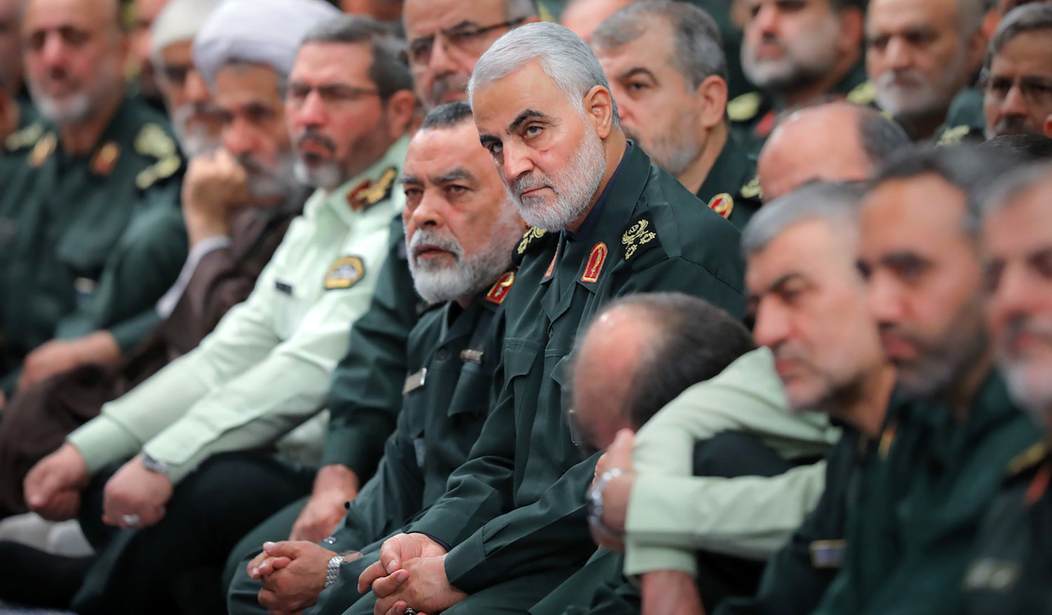Editor's Note: This column was co-authored by David L. Phillips.
The killing of Qasem Soleimani is a seismic event with huge ramifications across the Middle East and worldwide. It underscores the need for a new approach in Iraq and the region. To salvage something from its invasion and occupation of Iraq, the US should focus on the Kurds.
The Shiite-led Government of Iraq (GoI) has strongly protested the assassination of Qasem Soleimani. The Iraqi parliament will debate a resolution to terminate the Status of Forces Agreement (SOFA), which provides a legal basis for the deployment of US troops on Iraqi soil.
Iraqi rage will intensify, putting US troops and personnel at-risk. The spasm of violence is a reality check: Iraq is a failed state under Iran’s control. Iraqis are only unified by their hatred of America. The Kurds are the only friends we have.
How did Iraq get to this point? America’s failure to stand with the Iraqi Kurds created a gap that Iran has filled.
The US brokered Iraq’s constitution in 2004. However, Baghdad refused to implement articles favorable to the Kurds. The Obama administration demurred when it should have pushed harder to uphold Kurdish interests. Baghdad’s failure, and America’s acquiescence, left Kurds little choice but to initiate a process putting Iraqi Kurdistan on the path to independence.
Though 93 percent voted to disassociate in September 2017, the US failed to support their national aspirations. It turned a blind eye when Iranian-backed militias, the Popular Mobilization Forces (PMUs), occupied the oil-rich region of Kirkuk and evicted the Kurdish governor. The current crisis arose when PMUs, the same Khataib Hezbollah militias who seized Kirkuk and stomped on the Kurdistan flag, attacked US bases in Iraq and Syria last week.
Recommended
After repeated provocations, the US responded with air strikes that killed 24 militia members. Tensions intensified with the killing of Qasem Soleimani and Abu Mahdi al-Muhandis, head of Kataib Hezbollah.
The US has a big stake in Iraq, having sacrificed thousands of lives and spent trillions. In light of volatile conditions that exist today, how can Washington preserve its position and interests?
A direct line can be drawn between US policy towards Iraq and Iran’s aggression. Previous policies under successive administrations have marginalized the US and made Iran ascendant.
Qasem Soleimani was testing US resolve. In 2019, the Quds Force seized oil tankers in the Persian Gulf; shot down a US surveillance drone over the Strait of Hormuz; and bombed Abqaiq, a major Saudi oil processing plant.
Khataib Hezbollah’s recent aggression was intended to provoke a response. Qasem Soleimani sought to turn popular protests over Iran’s role in the country, during which more than 500 people were killed, into anti-American demonstrations. Turning their anger from Iran to the US, protesters chanted “death to America” and demanded that US forces leave the country. Rage and popular protests are likely to intensify after the killing of Soleimani and Muhandis.
America should reconsider its strategically flawed and morally defunct “one Iraq policy”. Recent events affirm America’s military superiority. At the same time, they underscore America’s irrelevance and diminished influence. In light of recent developments, the US should pivot and support Kurdish national aspirations.
In Iraq and other countries where Kurds reside, Kurds are critical to peace and stability. A regional approach, focusing on the Kurds, would secure US interests in Iraq and the region.
Candidate Trump pledged to withdraw from “endless wars” of the Middle East. He focused on bringing home US troops from Iraq and Syria. However, his plan was delayed by the rise of ISIS.
Kurdish valor helped defeat the caliphate. Iraqi Kurds helped liberate Mosul. In Syria, 11,000 Kurds died and 23,000 were wounded fighting ISIS at America’s behest. When President Trump announced the withdrawal of US forces, Iran responded by ratcheting-up operations against the US.
US influence is diminished without boots on-the-ground. Iran, Russia, and Turkey shaped a UN-sponsored constitutional committee to kick-start negotiations on ending Syria’s civil war. Kurdish political parties, whose armed forces gained control over more than 30 percent of Syria’s territory fighting ISIS, were excluded. Sustainable peace is impossible without the Kurds, rendering the committee an exercise in futility.
Turkey’s President Recep Tayyip Erdogan also took advantage of US ambivalence, further polarizing US-Turkey relations. Erdogan views the Syrian Kurds as an extension of the PKK, an armed rebel group fighting for greater political and cultural rights for Kurds in Turkey, resulting in 40,000 deaths and millions displaced since the 1980s. The PKK wants US mediation, but Erdogan rejects the participation of third parties.
Erdogan uses the conflict to justify draconian policies towards the Kurds and other oppositionists. His course has marginalized America’s influence, undermined Turkey’s democracy, and directed Turkey into Russia’s embrace.
Blood knows no borders. Just as conflict is transnational, peacemaking requires a regional approach.
James Jeffrey serves as Trump’s Special Envoy to Syria. Though Jeffrey is skilled and experienced, he is working with one hand tied behind his back. Current US policy limits his ability to maneuver diplomatically. The killing of Soleimani and Muhandis will make his job even harder.
The Iraqi Parliament is on the verge of censuring the Trump administration and evicting US forces. As the US redeploys to Iraqi Kurdistan, it will need a legal basis for basing troops there. As Iraq becomes more violent, the US might need to recognize Iraqi Kurdistan and an independent and sovereign state.
To manage the intricacies of US policy towards the Kurds in Iraq and the region, President Trump should appoint a “Special Envoy for Kurdish Issues”. The envoy’s activities would be based on the recognition that Kurdish and US interests align. Instead of placating our adversaries, such as the Shiite-led government, the US should support its friends.
























Join the conversation as a VIP Member